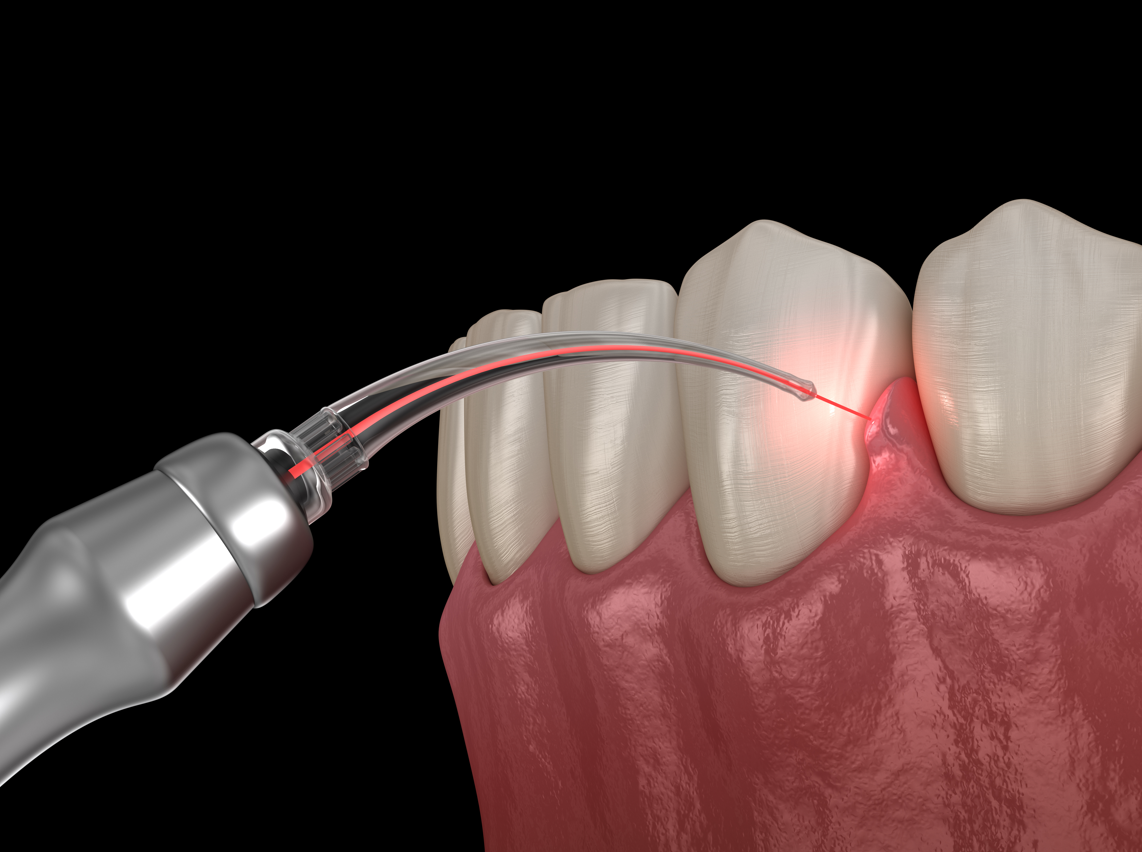What is the Problem With Periodontal Disease?
Periodontal disease can start as simple gum inflammation. Depending on your diet and hygiene practice, gum disease can rapidly become a serious issue resulting in significant damage to the soft tissue and bone that support your teeth. In worst-case scenarios, teeth and jawbone are lost, and you are more susceptible to other illnesses. There is a link between gum disease and stroke, heart disease, and diabetes.
Symptoms of Gum/Periodontal Disease
- Bad breath that won’t go away
- Red or swollen gums
- Tender or bleeding gums
- Painful chewing
- Loose teeth
- Sensitive teeth
- Receding gums or longer appearing teeth
What Causes Gum/Periodontal Disease?
Poor oral hygiene is a major cause of gum disease. A sticky, colorless plaque can form on your teeth over time if you don’t take proper care of your teeth and gums, including brushing and flossing often enough.
As plaque and bacteria build up in your mouth, tartar can form. The longer plaque and tartar remain on your teeth, the more harmful they become. As soon as tartar has hardened, it becomes very difficult to remove with at-home dental care and, in most cases, must be removed by your dentist. Until this happens, the tartar may cause your gums to suffer from two disease stages: gingivitis and periodontitis.
Gingivitis
The bacteria first starts to cause inflammation of the gums. When this happens, this is called gingivitis. The gums become red, swollen, and can bleed easily. Gingivitis is a mild form of gum disease that can usually be reversed with daily brushing, flossing, and regular cleanings by a dentist or dental hygienist.
This form of gum disease does not usually include any loss of bone or gum tissue that holds teeth in place. However, if left untreated will lead to periodontitis or periodontal disease.
Periodontitis or Periodontal Disease
When gingivitis is not treated, it can advance to periodontitis (“inflammation around the tooth”). Gums begin to pull away from the teeth and form spaces called pockets. These pockets can quickly become infected.
The body’s natural defense system will fight the bacteria as the plaque spreads and grows below the gum line. Bacterial toxins and the body’s natural response to infection break down the bone and connective tissue that hold teeth in place. If not treated, the bones, gums, and tissue that support the teeth are destroyed. The teeth may eventually become loose and have to be removed.
Gum Disease Treatment in Thornton
Brushing and flossing alone may not be enough to control the effects of periodontal disease. Professional cleaning by a dentist such as Dr. Bruggeman or a dental hygienist is recommended as they can remove tartar.
Dr. Bruggeman may also perform advanced periodontal treatments in Thornton, such as deep cleaning (Scaling and Root Planing), medications, or surgical treatment. Some surgical treatments involve flap surgery or bone and tissue grafting.
High-Risk Factors For Gum Disease, Periodontal Disease.
- Smokers: Smoking can weaken your immune system and make you more susceptible to gum disease.
- Diabetes: If you have diabetes, you may be more at risk for developing infections, including gum disease.
- Medications: Medication that reduces saliva flow exposes your mouth to infection. Some drugs might cause abnormal gum tissue growth, making it difficult to brush and floss your teeth and gums.
- Genetic susceptibility: Some people are more likely to develop serious gum disease than others.
Don’t Wait Until It’s Too Late
Contact Bruggeman Dental today, call us today to set up an appointment. Especially if you suspect you have gum disease. We’ll help you get back on track to healthy teeth and gums.

